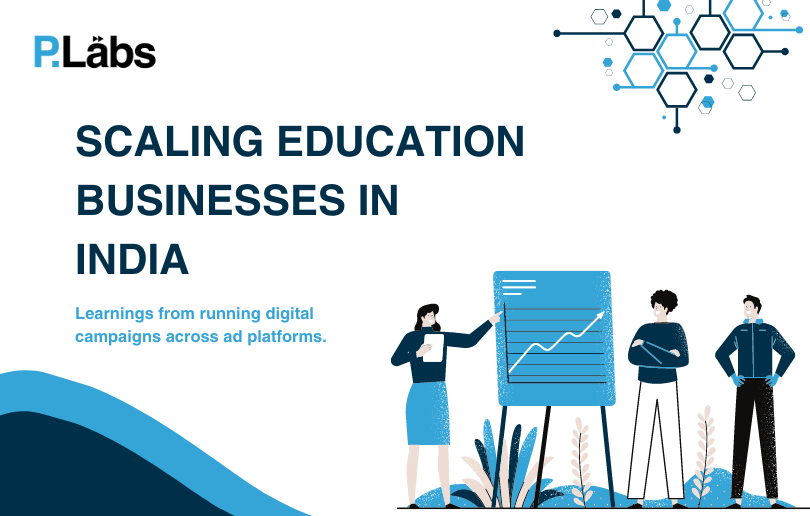Through the course of working with a wide range of education, and ed-tech companies, these are the learnings we have gathered. Often while starting the acquisition journey, brands tend to miss out on key aspects that we have captured below. Taking shortcuts may not always be a great idea when you’re looking to build a robust business.
If you’re learning to build a business in the education or ed-tech space, take a look at our list of learnings to help you avoid making some common mistakes. These cover the whole marketing funnel and discoveries from working with companies with a revenue of 10Cr to those funded in 100s of millions.
1. Your customer experience matters, during onboarding and after: If your sales team is great at finding customers, a bad after-sales experience, regardless of the price point, means you will very quickly develop a poor reputation within the educational community.
2. Finding brand evangelists, or fans for ed-tech is necessary: While every industry has its influencers, this is more so true when it comes to ed-tech where often the end customer is investing his/her own money to drive more end-users. If you find people who love your product, ensure you’re able to do justice to them, and their needs.
3. Keep listening to your customer: While the acquisition is possibly the easiest part of the funnel, retaining customers is impossible without a good product or a good after-purchase team. You cannot market yourself out of a bad user experience.
4. Your brand name matters to parents: When a parent is proudly announcing the products their child is using, brand names often matter. Don’t cut corners when it comes to your branding experience. And if investing there is not possible, focus on a product that knocks it out of the park
5. Create for your primary and secondary customers: Children don’t make a lot of purchase decisions but they do tell their parents how your product is working or not. Be sure to create something that works for both sides. No parent will invest in a product that doesn’t make their child happy.
6. Cost of acquisition is inversely proportional to your levels of brand awareness: The more people know you, the better your chances of acquiring them inexpensively, or organically. However, building a brand is more than advertising on TV. It’s consistency in everything you do, for every single customer.
7. Keeping an eye on careers is important: The internet, and recently AI has inverted the world and careers. The education industry must prepare for shifts in learning requirements, and readying children for the skills of the future. Capitalising on these trends, which go beyond coding skills, is necessary to stay ahead of the curve.
8. Your onboarding/pre-sales team can make or break your brand: Have you ever considered buying from a brand or business where the first salesperson didn’t make you feel confident, and answer everything you needed to know? Ensuring they can answer everything for your customer is critical to improving not just your conversions but also a major driver for trust.
9. Pricing is only a reflection of the perceived value: At a time when private education is expensive, buying a new product is not a concern for most parents, as long as they can see the value. Though this value only is visible based on the outcomes they see in their child, and the development of their skills.
10. Look outside the primary ad channels on digital platforms: While the most common platforms for advertising remain popular due to their volume of usage, the reality is that users are accessing many other platforms, too. Avoid over-indexing on a few channels. Develop multiple sources of acquisition.
For more continued learnings, visit: plabsventures.com/blog

